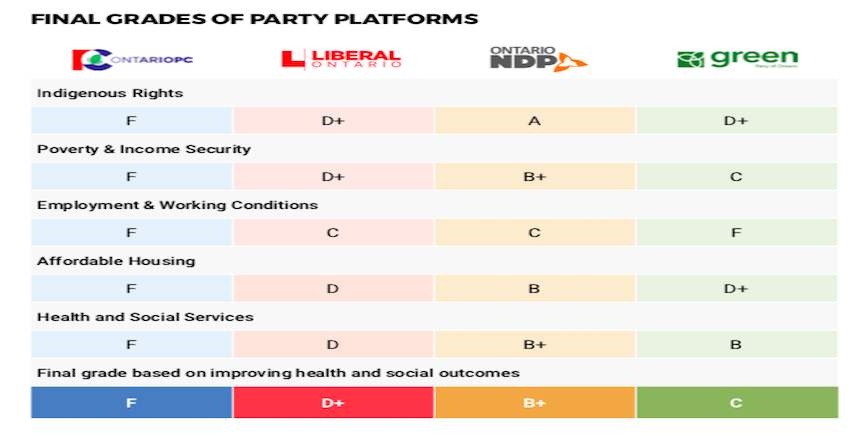Every region needs a Health Providers Against Poverty group.
Why? Because we can’t ever allow the decimation of health and social programs again.
In 1995, when the Conservative government spearheaded by Mike Harris was elected in Ontario, we witnessed catastrophic slashing of health, education and social programs that included: cancelling the provincial housing program including 17,000 units of affordable housing that were in development that would have housed 40,000 people; welfare cuts of 21.6 per cent; closures of hospitals; layoffs of nurses; cancellation of infrastructure projects. Harris’ government literally decimated cities, forcing mergers such as the six former cities of the Metro Toronto region (Etobicoke, Toronto, North York, Scarborough, East York, York), into the new City of Toronto.
Homelessness, hunger and poverty soared. The health-care system never recovered. Cities never recovered. Many people were damaged and never recovered.
It feels like we are on the brink of a repeat, which is why I welcome the astute work of Health Providers Against Poverty (HPAP).
Health Providers Against Poverty is an alliance of health-care providers who recognize that poverty is one of the most significant risk factors for poor health.
Through advocacy, education and patient care, they work to eliminate poverty and reduce health inequities in Canada. Since they were founded in 2005, they have grown to have a network of several hundred providers as well as provincial chapters in Ontario, Nova Scotia, and Newfoundland and Labrador.
This winter they produced an outstanding report exposing the inhumane and unhealthy conditions in Toronto’s temporary winter respite shelters.
HPAP has just released a report titled “Poverty and Health Report Card: An Analysis of Ontario’s 2018 Party Platforms For Reducing Health and Social Inequities.”
“Grounded in a social determinants of health approach, this report focuses on five key election priorities that significantly impact and influence physical and mental health outcomes. These priorities are (1) Indigenous rights, (2) poverty and income security, (3) work and employment conditions, (4) affordable housing, and (5) health and social services. Using these main priorities, we reviewed existing research conducted by leading researchers, advocacy groups, and non-partisan government stakeholders to devise our grading criteria.”
A report card is one of the oldest advocacy tools around. It’s not used often enough.
In this case it’s like a diagnostic tool that can help Ontarians set their future.
As HPAP writes:
“This report is not an endorsement of any one political party or candidate. We encourage all readers to thoroughly review each of the parties’ platforms and make a decision based on their own values and judgment. This report is merely meant to contribute to the provincial dialogue about economic, social, and health priorities in the upcoming election.”
Image credit: Health Providers Against Poverty
Like this article? rabble is reader-supported journalism.





